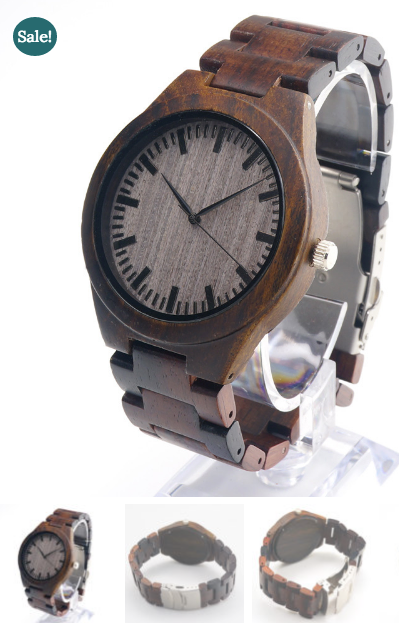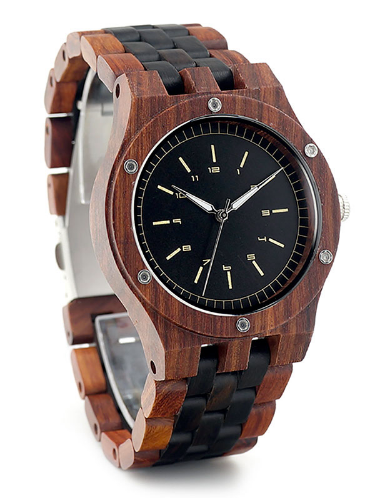Building a Business After a Breakdown

We’ve all heard, in some form or another, the old adage that “you have to hit rock bottom before you can truly change.” In the case of my friend Jan, his rock bottom was a nervous breakdown due to the compounding stress of being an employee, a student, and a man in his 20s trying to figure things out.
It turns out, some men aren’t built to be employees, while others aren’t built to be entrepreneurs. When you’re the latter, you see the risks, the uncertainty, and the stress as too much to handle and you’d rather work and build your future under a company’s umbrella. When you’re the former, you see all those risks, uncertainty, and stress as a welcome opportunity to build something YOU can control. Being at the mercy of a corporation is too risky for the entrepreneur, while being at the mercy of your own limiting beliefs and fears, is too risky for the employee.
In this episode of The Sharp Gentleman Podcast, I’m joined by my friend Jan Koch, founder and creative mind behind Little Oak, a company of exquisite wooden watches, and we’re discussing what it’s like building a business after a breakdown. There’s an ugly side to being an entrepreneur at heart, and sometimes it rears its head at the least opportune time.
Take a listen and let me know what you think in the comments below. [Subscribe Here]
Show Notes:
First of all, Jan Koch is a German entrepreneur who started his first business in 2013. He’s the founder of the wooden watch brand Little Oak and joins us to talk about the tough times in entrepreneurship – especially sharing why he decided to quit the rat race and become self-employed. The link I included goes to a special page on his site setup specifically for all you listeners and readers. You’ll get a promo code that discounts your purchase as a thank you for listening. How cool is that?
After learning more about Jan, I decided we should get together and talk about his story. I ordered a watch (The Solid) and love the quality, so when we got on the phone, it was easy to jump right into business. If his stuff wasn’t high quality, I certainly wouldn’t be bringing it to you, right? Exactly. Here’s our interview on building a business after a breakdown.
Blake Hammerton – Jan, thank you so much for joining me on the line! How are things over there in Germany?
 Jan Koch – Thanks for having me Blake. We’re doing pretty well here in Germany.
Jan Koch – Thanks for having me Blake. We’re doing pretty well here in Germany.
BH – One of the things I want to touch base with you on especially is this idea that you’re just not built for being an employee of someone, sitting inside a system of somebody else’s business (of their rules). You realized you had to go and do it yourself. Let’s start at the beginning. Tell me the story of your breakdown and realizing that, you know what, this just isn’t for me.
JK – Absolutely. I think it happened back in 2013, where I was going through the traditional career path. My father was working for the German financial offices and my mother is still there, so I’m the first real entrepreneur in our family. It was basically set for me to go and get a job, get a good degree, and basically work until I can retire and enjoy life at 65 – or something like that.
I got a pretty good degree in business infomatics [IT + Business] which is an integrated degree, and I was working as a business consultant at the time. It just wasn’t fulfilling me and I wasn’t happy about what I was doing. There was just something about working with my coworkers that felt like playing a game. It felt like acting when I was at work. I knew I couldn’t speak totally honest with them because I knew in the background when I wasn’t there, everybody was trying to position themselves and put themselves in the best place possible. They want to be in the best position to earn the most money, get up for the next promotion – whatever to get ahead.
BH – Yes, that’s the office politics. The two-sided, two-faced game.
JK – Yeah, and I really hate that. So I decided to study my masters degree on the side in IT Security. So I was working 40 hours a week and took on a masters degree on the side, which was supposed to take 2 years. The class was very small. In the whole European Union, there was only 11 or 12 people in the class. So it was very high level IT security.
Looking back on it now, I wouldn’t say I was super crazy passionate about it, but I just wanted to do something different. I also felt that having a masters degree in IT security would guarantee a six-figure salary. It was one of the reasons I took on the degree was to have the guarantee of a high paying job and something I thought I would enjoy doing.
So my employer split fees with me to go to school, and we were about 4 or 5 months into the school year when I had my breakdown. I was working 70-80 hours each week with my business consultant job and studying for my masters, and at one point I just couldn’t do it anymore. I remember coming home on a Friday and my whole body was shaking. I got home around 2pm and had to study for an upcoming exam and couldn’t.
I was shaking and couldn’t focus, and was even throwing up. In the end, I spent the two days of the weekend in the hospital, and was released on that Monday. I got some medicine to cool down and all that, but I really spent those two days realizing that it couldn’t get any worse. Even if I were to start a business, there’s no chance I could do MORE work than I was already doing. So after that weekend in the hospital, I decided to ditch the studies (the masters degree) and become self-employed on the side instead.
BH – I love it. I love the realization that it couldn’t get any worse. To have the realization that starting something new, a new side project – I mean, anything… becoming a hair dresser – it could not be as hard as balancing the 80 hours a week you’re working for someone else, plus the hours you’re studying for your masters, to end up still working for someone else. It feels like you had a moment where you thought,
There’s got to be a better way, and any way is better that this.
I like that idea a lot. It sucks that you have to reach that point sometimes where you feel like you have to stay inside the system of working for someone else, and get a good job, and your masters, and your retirement – doing all the things you’ve been told are the right things to do. It feels like you had to have a break down to get into a position to realize there is another way, a way that fulfills you. It’s unfortunate that you had to go through that, but it allowed you to come out the other side and realize you wanted to do something on your own. So after that, after coming home on that Monday, where did you go? What was the next step for you?
 JK – The next step was a pretty tough step. I had to tell my parents that I wasn’t going to pursue the masters degree anymore. It was the first time in my life (and I was 23 at the time) that I really felt like a failure. I really felt like I wasn’t smart enough to do the masters degree – and maybe I wasn’t. But realizing that was important because I couldn’t endure the pressure anymore.
JK – The next step was a pretty tough step. I had to tell my parents that I wasn’t going to pursue the masters degree anymore. It was the first time in my life (and I was 23 at the time) that I really felt like a failure. I really felt like I wasn’t smart enough to do the masters degree – and maybe I wasn’t. But realizing that was important because I couldn’t endure the pressure anymore.
I kept asking myself why I would continue to endure this – why would I keep putting myself through this? After that conversation with my parents, who were incredibly understanding and helpful and supported me all the way with every decision, basically, I setup a meeting with my boss to tell him I was quitting the masters program.
I had to pay back what my employer had paid for the program, so it forced me to stay another 18 months or so at that company. In the same day, however, I also asked my boss if I could start a side business in the IT field. I had already been consulting and doing web development, so as long as my side company didn’t compete for interfere with his company, he agreed. So after that, a good fiend of mine and i got together and started our very first business in IT projects (hardware and software).
BH – Right on. It sounds like your support system was one of the main reasons you were able to move forward. Your parent especially, were incredibly understanding and got the fact that it wasn’t for you. Especially as parents, they knew they wouldn’t want to see you suffer through something if it’s not for you, if you don’t think it’s going to pan out and make your successful or fulfill you in some way.
Having your parents tell you it’s okay to quit this path and pursue your own AND your boss tell you the same thing, became a huge turning point for you, I think.
JK – Absolutely. I could not have done any of this without that support. My fiancée plays a big role in this as well. We were together 2 years at that time, and she’s been through tough time herself, so she naturally was able to support me 100 percent. I think that’s one thing that isn’t communicated in this shiny world of entrepreneurship (where everybody wants to start the next Instagram or Snapchat or whatever), is just how hard this is and how much you need these support systems. I doubt anybody can build a really successful business –whatever that means to them– on their own.
BH – I totally agree. I think it’s so funny that you bring up people trying to build the next Instagram or whatever because 8 years ago, I came up with the idea to build the next Twitter. There were a few things Twitter was missing at the time that I knew I could code in, but I never did it. It must have been six months later that someone else released some advanced features in Hootsuite, and I thought, “dang it, there goes my chance.”
JK – [laughing] And how did you feel about that?
BH – You know, it’s one of those things. I remember back in the early 1990s when my mother was convinced she was the one that invented those pre-strung Christmas lights [they come in nets] you can throw over your bushes and foliage in your yard to light them up [also pre-lit trees]. Then one day the pre-lit nets and tree came out from some company and it just further solidified my own family system. We may invent something in our minds, but we don’t do anything with it, and then it shows up from another company.
So it’s really affected my trajectory in my life because I see that I have to take risks and take action or somebody else will, and I wont’ feel like a failure, but I’ll definitely feel lazy, like I gave up too soon, and that my idea is out there somewhere with someone else’s name on it… and that drives me crazy.
JK – Yes, I relate 100 percent to that feeling. I feel like being an entrepreneur, you have to constantly take risks and get comfortable with being uncomfortable – as cheesy as it sounds, it’s just the truth from my experience. And the fear of regret is one thing that especially drives me in building the business because, just like you said, you gotta be willing to do it for yourself and you have to be willing to take action on it.
You know, I want to support my family in any way I can, and if it’s through the career path as an employee for a certain dollar amount each hour, I’ll do that knowing my boss is making much more off my work. If it’s making money as an entrepreneur and doing all the work myself or with a team I’ve built, I just have to give it all I’ve got to do what I have to do, or whatever makes me feel good.
 BH – Exactly, and you know what? One of the first things people think when they see entrepreneurs is, “man, they must really like risk and taking leaps into things” – part of that is true to a degree, but it’s all about perspective. From the outside, it makes us look risky, but from the inside, we’re wrestling with it just the same as you!
BH – Exactly, and you know what? One of the first things people think when they see entrepreneurs is, “man, they must really like risk and taking leaps into things” – part of that is true to a degree, but it’s all about perspective. From the outside, it makes us look risky, but from the inside, we’re wrestling with it just the same as you!
We don’t like risk. We hate risk. Nobody likes to have to put it all on the line! But we realize we have to do it. We know that if we try to play it safe, we go back into and employee mentality where we know it will be okay as long as we don’t break too many rules, they’ll still pay us.
That’s what it’s like with an employee mindset – you can get away with some things and feel a little free, but don’t push it too much or you’ll get fired. As an entrepreneur, you have do thing [big things] to get that train moving forward to start generating revenue, but you don’t want to risk too much because you could derail, and then you’d have to start all over.
So no, we don’t like risk, but we have to do what needs to be done to generate enough force to get this plan moving forward. Two things that really stand out to me about being an entrepreneur and why you would want to be one are:
- I saw a Navy commercial like 8 years ago that asked, “If your life was a DVD, would you watch it?” And my answer was no, my life is really boring. I wanted my life to be more exciting so I have to do things on my own. Because at the end of my life, I want my video to be awesome. I want to see all the parts of life, not just “he woke up, went to work, came home, ate, slept, started over.” I wanted more.
- The second thing is thinking about the risk and worrying what other people are going to think. What if you don’t do it right? What if you make a fool of yourself? What if you ask for help and nobody helps you? What if you like what you do, but other people pass judgement on it? My answer is WHO CARES. Their opinions don’t pay your bills. Do what you love.
JK – I totally agree. I am afraid to death of this boring lifestyle idea. To stop worrying about what other people think is a big mindset shift. For me in the beginning, I would think about it this way – who guarantees that I’m employed next month? Who guarantees that next month my company doesn’t go broke and they have to let me go? What do I do if they suddenly let me go?
I would have to go back to other companies and beg and prove myself and ask, “please employee me, please employee me.” When I’m an entrepreneur, I’m in full control of my money and my prosperity. The actions I take directly influence the money I make. Yes, you’ll lose money sometimes, and yes, you’ll win money sometimes, but being an employee and putting your fate into other people’s hands is still a risk too many people underestimate.
BH – Yes, and this is a big mindset shift as well. This is something they see [employed] as a safe bet and it’s something we’ve all been taught for all our lives too. “Grow up, go to school, get a good job, stay there for 45 years, and then retire.” And we know it’s just not like that anymore. As entrepreneurs, we see relying on that system is a huge risk and we have to go out on our own. These are two completely different schools of thought.
For you though, how long were you in the web development field before you launched Little Oak?
JK – I would say 3-4 years. I started as a website and WordPress developer, and still do a little freelance on the side. Little Oak derived out of it because it’s built in a WordPress shop and the story is two-fold. On one side, I have a good friend in Las Vegas doing eCommerce pretty successfully. We grew up in the same town here in Germany, and about 10 years ago he moved to the US. Well, when he came back to visit and hang out, he was wearing the cool wooden watch and I was super fascinated with it.
From there, it opened my eyes to the fact that wooden watches existed. The second part was the father of my fiancée, who has since passed, knew a lot about watches and was a collector. His passion and knowledge brought me into watches even deeper. So combining the fascination with the wooden watch, the collection and expertise of my fiancée’s father, and knowing how to build the sales platform online is how Little Oak was born.
BH – So you were fascinated by the wooden watch and how unique it was, and parlayed that alongside your talent and expertise in web development. You were set to build a really viable business now!
JK – Exactly. What I really love about Little Oak, is our wooden watches are 100% organic wood. There’s no fake wood or fake veneers in there. And thus, they each have a unique organic wooden grain to them. I have a few watches on mine laying around here and even when I lay two watches of the same model next to each other, they look different. The grain is a little different on the face, the case, or the wooden links (strap).
These wooden watches are also more comfortable to wear because when you have a strap made out of leather, you will sweat more underneath it in the summer months. When you have a band made entirely out of wood, you won’t sweat as much under the band and it will make you feel cooler. These are just two of the many things I love about these wooden watches so much.
 BH – Yes, and I have the Solid model and I love the different darknesses of the stained woodgrain on the watch face. It definitely stands out as unique and organic and un-messed-with. A lot of other companies may provide you with a wooden watch, but it may only be a stained balsa wood veneer. And I like the Solid model because I like the combining of elements – the natural leather with the natural wood.
BH – Yes, and I have the Solid model and I love the different darknesses of the stained woodgrain on the watch face. It definitely stands out as unique and organic and un-messed-with. A lot of other companies may provide you with a wooden watch, but it may only be a stained balsa wood veneer. And I like the Solid model because I like the combining of elements – the natural leather with the natural wood.
JK – Yes, and one analogy I like to use to compare the watch quality to others is this: if you got a high quality pair of jeans, those jeans will change the more you wear them. They’ll get their touch points and color changes and wear spots from you personally. It’s why some manufacturers suggest not washing the jeans for the first 6 months or so, giving the jeans time to develop these unique design aspects. It’s the same with out watches. The more you wear it, the more the wooden grain will change just a little bit, and make it more unique.
BH – Excellent! So wrapping up a little here, after all the ups and downs of being an entrepreneur, what would you say are maybe 1 or 2 things you want to share about being an entrepreneur, or taking risks, or finding something you’re passionate about?
JK – I think the most important thing is to not compare yourself to others. That’s one mistake I made in the past. I was looking at Pat Flynn from Smart Passive Income, for example, who’s making six figures per month on his blog, and I was so intimidated seeing these big numbers. I had to realize he’s in a totally different position than I am. It doesn’t even make sense to compare to the other guys because the business you’re building is uniquely yours.
It incorporates what you do, what you love, what you’re good at, and what you suck at. [laughs] It’s true! You need to be aware of that stuff! You need to be aware of what kinds of things you can and can’t handle so you can get help. For me, I’m really aligned with Gary Vaynerchuk on this one – triple down on your strengths and focus on what you’re really good at, which for me is WordPress development and a passion for watches.
What I really suck at is copywriting and accounting and all that stuff, so I have people do it for me. It doesn’t make sense to either waste my time learning how to do something I don’t want to do –which is just like being in a job–, or trying to do it all myself and ending up making expensive mistakes.
BH – Absolutely. So that’s actually two nuggets! 1, don’t compare yourself, and 2, become aware of what you’re good at, what your suck at, and outsource. I love it, and I love how you said it. It speaks to me personally because there are moments when I look at things and say, “man, I really suck at that.” [laughs] It really helps to have that perspective and awareness.
Okay, Jan, where can we go to learn more about you and Little Oak, and get some watches and find out how we can support you?
JK – I’ve actually setup a special landing page for your listeners and readers LittleOak.store/blake – That’s where you’ll find a nice discount code for all your listeners and fans, and if you want to connect with me, the best is to hit me up on Twitter. @iamjankoch
BH – Alright, thank you so much Jan for being on this episode of the podcast. This episode is chock full of value and i loved learning about you and your story of building a business after a breakdown. Your vulnerability and sharing a story so many of us relate to – that we’re not supposed to be under someone else’s thumb, handling the pressure of the job, the graduate degree, and the path that we’ve been told we should take. Your story speaks volumes about how we all struggle to figure out how we get to do what we want to do while battling what we’ve been told we’re supposed to do.
Thank you so much for being a guest and telling your story. Here’s to more adventures and stories to come!
What’s YOUR story? Did you have a breakdown and become an entrepreneur?
Do you think employee or entrepreneur is a better choice? What’s right for you, why?
Share in the comments below so we can connect!




